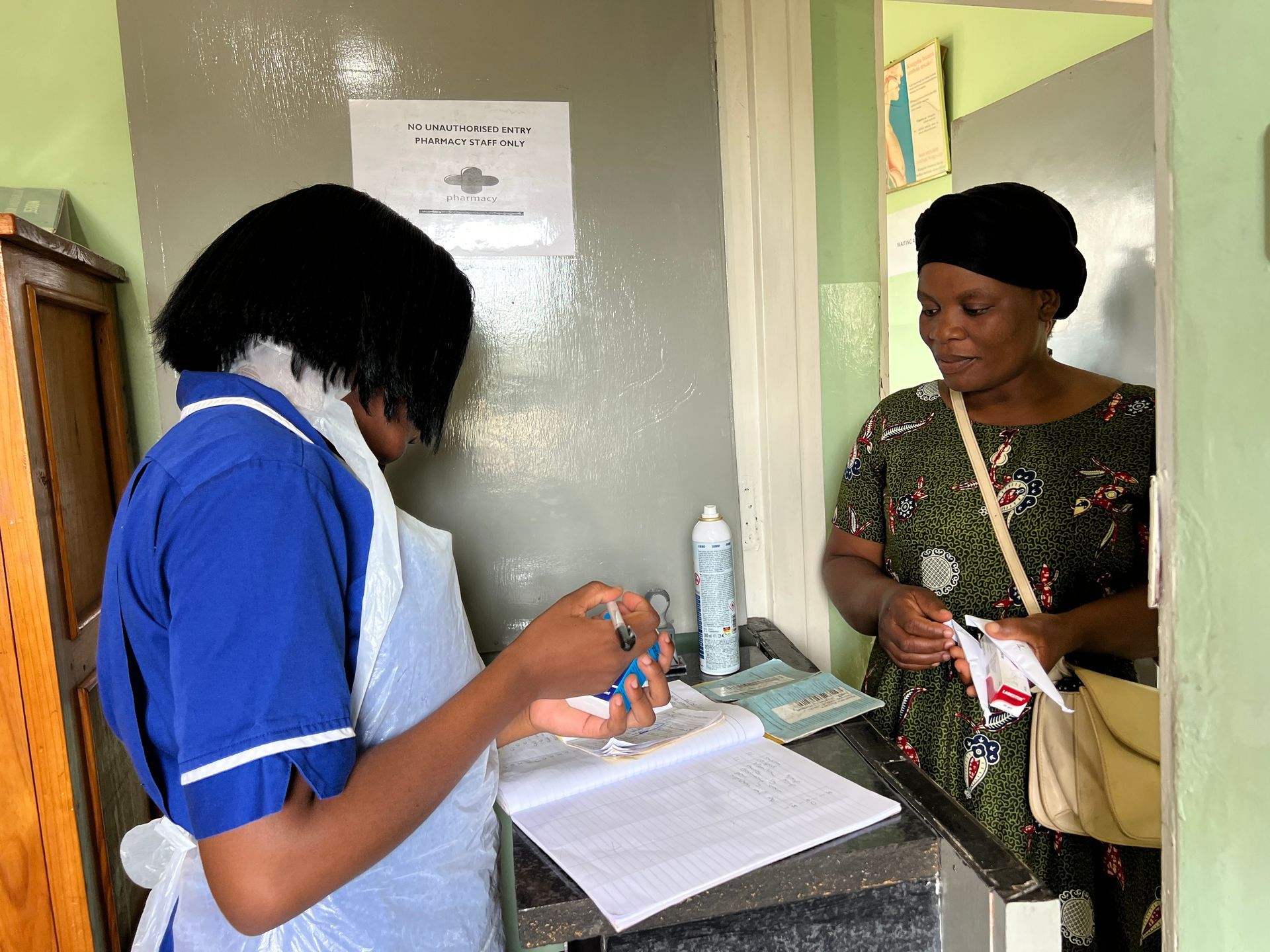From YouTube Tutorials to Lifesaving Care
Sparkle's Clinic Transformation
What started as a humble first-aid post, with Aida and Sarah relying on YouTube for basic medical advice, has evolved into a lifeline for the community. Today, Sparkle’s clinic sees up to 80 patients a day, staffed by two clinicians and a nurse, making it one of the few free healthcare options in the area. For many children, it’s the first time they’ve ever been seen by a healthcare professional.
A Critical Lifeline for the Community
In Malawi, where many children are born at home and rarely see a doctor, our clinic offers hope. We conduct malnutrition screenings using MUAC (Mid-Upper Arm Circumference), deliver essential medications, and provide much-needed medical attention. The growth of our services is a direct response to the overwhelming need in our community.
Yet, challenges remain. Importing medications is fraught with regulatory hurdles, rising costs, and logistical issues. Keeping the clinic stocked and compliant requires meticulous planning, regular stock checks, and strict accountability - ensuring every donor dollar makes a difference.
Expanding Our Reach
We’re not stopping at the clinic. Sparkle is now conducting outreaches in our communities and in our other site Namitembo, raising health awareness and bringing preventative care directly to underserved communities. For families who can’t reach us, we’re taking healthcare to them.
Strength Through Collaboration
Partnerships have been instrumental in transforming our impact. In the past, we’ve worked with Matwale Healthcare to deliver polio and cholera vaccinations and Operation Smile to identify children in need of cleft palate surgery.These collaborations have helped us provide specialised care and reach more families in need.
Now, we are seeking collaborations with opticians, dentists, specialists, and physiotherapists to further expand our services. Many children in our community have never had their eyesight tested or received dental care, and we want to ensure they get access to these critical services. By partnering with like-minded medical organisations, we aim to fill these gaps and deliver holistic healthcare to every child who needs it.
Sparkle’s clinic has come a long way, but the journey isn’t over. With your support and the strength of new collaborations, we can continue to bring hope and healing to the most vulnerable. Together, we can make healthcare accessible for all. Contact
@Ilona de Sainte Marie
fore more information.








